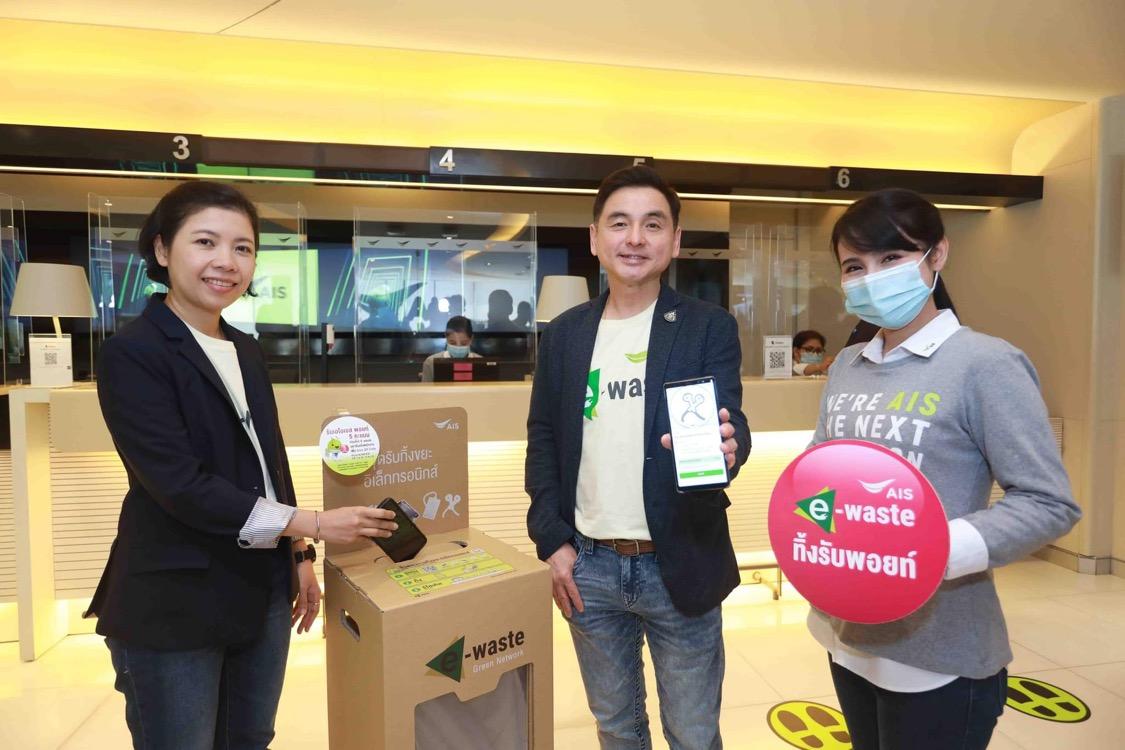
Advanced Info Service (AIS) has embarked on a campaign to encourage customers to discard five types of e-waste at its shops to receive AIS points that can be redeemed for goods and services, as part of its mission to support the environment.
"AIS E-Waste, Dispose for Points" campaign was launched at a news briefing by AIS on Wednesday. The project started on Tuesday and runs until Oct 31.
AIS customers can bring five types of e-waste to drop off at AIS shops, scan a QR code to receive AIS Points via the My AIS app. One e-waste item is worth five points and one mobile number can receive up to 10 points per day.
The five types of e-waste comprise mobile phones/tablets, mobile batteries, chargers, headphones and power banks.
People who want to join the campaign need to delete data and images from their phones or tablets and remove memory cards before dropping off handsets.
If mobile batteries or power banks have blistering or discolouration, people are encouraged to soak them in water for five hours to reduce the energy charge and wrap the batteries in a bag or paper before bringing them for disposal.
"The company is focused on corporate social responsibility, utilising our capabilities and developing innovation to tackle climate change and environmental issues," said Somchai Lertsutiwong, chief executive of AIS.
The latest move is part of the company's environmental mission "Thais Say No To E-Waste", which aims to take e-waste from Thais and dispose of it properly without using a landfill.
From 2016, AIS has collected e-waste generated by its network and business operations from all over the country, disposing of it following international protocols, said Mr Somchai.
Over 710 tonnes of waste have been disposed of under the programme.
Network partners include 52 organisations from the private and public sectors working to boost public awareness about e-waste disposal, which can be done at over 2,000 locations across the country.
Thailand produced 621,000 metric tonnes of e-waste in 2019, the second most in Asean, behind Indonesia, which produced 1.61 million metric tonnes.
According to the "Global E-Waste Monitor 2020" report by the UN University, e-waste was estimated to reach 53.6 million metric tonnes in 2019 globally.
By 2030, the quantity could reach 74.7 million metric tonnes.
"E-waste is another crucial factor that is increasing global warming, and if we do not deal with it using proper methods, chemicals will leach into land and water, threatening life on earth," Mr Somchai said.